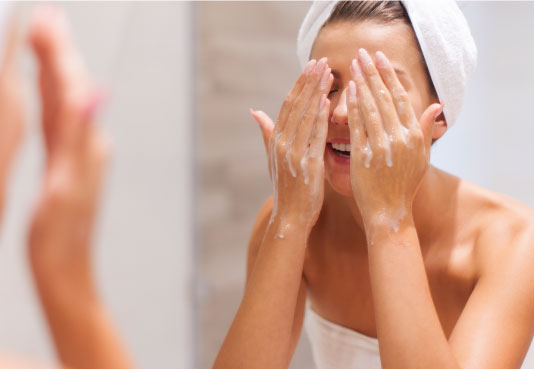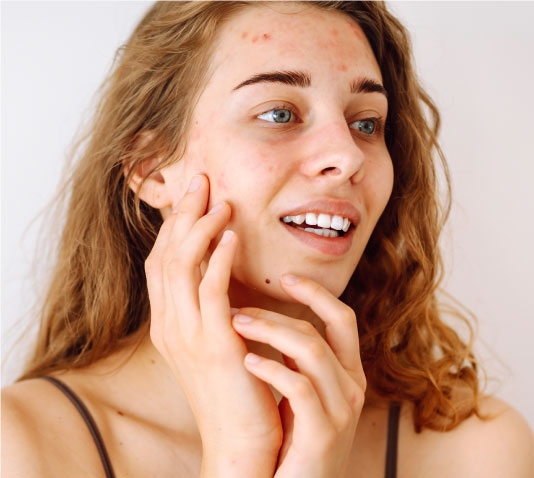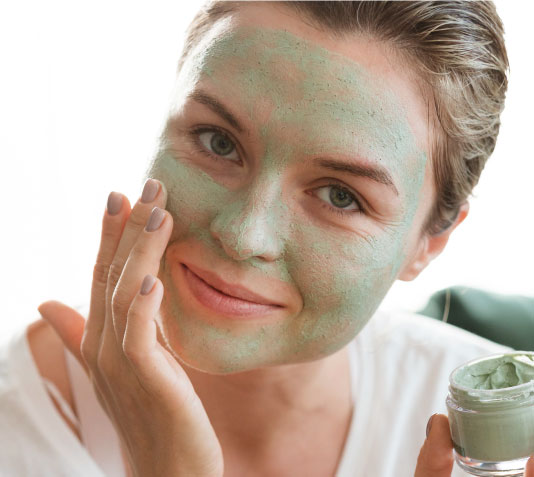Blind pimples: why they appear and how to treat them
In this article we are going to tell you why blind pimples appear and how to treat them effectively. Find out how to prevent and treat them.

What are blind pimples?
Blind pimples or deep spots, also known as cystic acne, form under the surface of the skin and can be hard to see. As they develop deep down, blind pimples are known as subcutaneous inflammation spots in medical terms. We can notice them because we have small lumps which can be painful, inflamed or red.
They usually appear on our face, particularly on our forehead or chin, but also on our upper chest and back.
How to avoid blind pimples?
Skin cleansing to prevent impurities. Gel cleansers, according to your skin type are the most recommended, which you should apply using outward circular movements from the middle of your face, first wetting your face so as to make a foam. Rinse you face when you have finished. You can also use exfoliating gel to prevent impurities and create a more matte finish on your skin.
Specific prevention in your skincare routine to avoid blind pimples. You should use products such as serum containing salicylic acid or niacinamide which both help prevent imperfections such as spots and blackheads in your skin.
Hydration, according to your skin type, since dry skin can tend to produce acne, as if your skin is properly hydrated, not only will you reduce imperfections, but you will show off much smoother skin too.
Don’t touch them: one of the worst things you can do is try to burst them or keep touching blind pimples. That will only irritate them more and cause infection or scarring.


Why do blind pimples appear?
Blind pimples are normal spots that form when the pores of our skin are blocked with sebum (oil produced by the skin), dirt, bacteria, dead skin or hair. There are many reasons why this happens:
Dirt, sweat and dead cells: the accumulation of this type of residue can block pores, particularly when we wear tight clothing causing us to sweat more. Wearing thick makeup also blocks pores.
Excess sebum and poor hygiene: our skin usually secretes oily substances to keep itself hydrated and protected, but when there is excessive production by our sebaceous glands, we can get blind pimples on our face (chin and nose), back and shoulders.
Hormonal imbalance: some growth-related hormone changes such as the menstrual cycle or puberty, and other occasional changes such as pregnancy can produce pimples.
Medication: acne or spots can be caused by medication containing corticosteroids, testosterone or lithium, among others.
Bacterial inflammation: our immune system can sometimes produce an inflammatory response due to the bacteria known as propionibacterium acnes.
Hereditary factors: if your parents had acne or blind pimples, you are more likely to have them than if they didn't.
How to treat blind pimples?
A deep spot usually disappears by itself over time, but there are different treatments that can speed up the process. We are going to tell you about the best ways to get rid of deep spots from your face:
Apply a hot compress: if you wet a towel with hot water and press it over the spot for around 10 minutes, it will help alleviate the pain and the spot will start to rise towards the surface. You can try doing this several times a day.
Natural remedies, such as raw honey which is a popular product to apply to blind pimples. The honey must be natural and raw though, since only this type of honey will help to reduce the inflammation of the skin.
Natural sulphur, rosemary or aloe vera soap can also be beneficial for skin susceptible to forming blind pimples. Apply a small amount to the spot after cleaning the skin, and repeat this process twice a day.
Homemade aloe vera, green clay or strawberry masks applied for 15-20 minutes also help to prevent and reduce inflammation.
Camomile infusion: make a camomile infusion in 2 litres of boiling water, and when it starts to steam cover your face with a towel so that the steam concentrates on your skin, but be careful not to get too close.
Tea tree oil: due to its anti-microbe properties, this oil helps to reduce the proliferation of bacteria. Apply two drops of tea tree oil to a piece of cotton wool and dab it on the affected area a couple of times a day after washing your face well.

What do you think about?
Share comments, opinions and tricks with the Community







